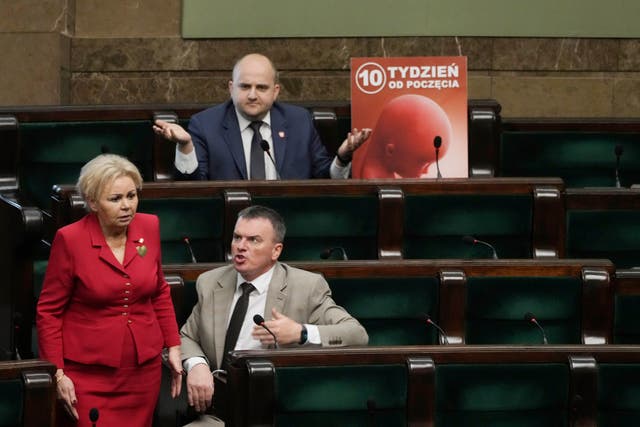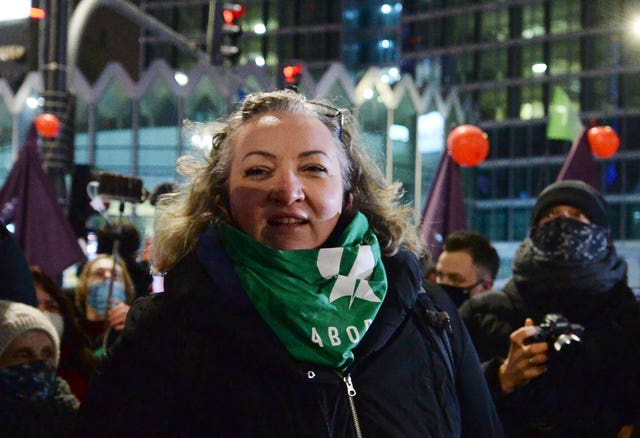Poland’s parliament debates liberalising abortion law
Prime Minister Donald Tusk wants to legalise abortion until the 12th week of pregnancy.

Poland’s parliament has held a long-awaited debate on liberalising the country’s strict abortion law.
The traditionally Catholic nation has one of the most restrictive laws in Europe but many women terminate pregnancies at home with pills posted from abroad.
Lawmakers in the lower house of parliament considered four proposals and will vote on Friday on whether to send them for further work.
Abortion is regulated by a 1993 law that was heavily influenced by the Catholic church, and was further restricted following a 2020 constitutional court ruling preventing abortion in case of foetal abnormalities.

Prime Minister Donald Tusk, who came to power in December after eight years of rule by a conservative party that restricted abortion rights, wants to legalise abortion until the 12th week of pregnancy.
However, his three-party governing coalition is torn on the issue, and conservatives in his alliance had pushed to keep the issue off the agenda until last weekend’s local elections were over.
Surveys show public support for a more liberal law but those fighting for a total ban are also mobilised.
A conservative lawmaker, Dariusz Matecki, played the sound of a child’s heartbeat through a microphone at one point in the debate and held a poster showing a foetus and the words “10th week after conception”.
Wladyslaw Kurowski with the main conservative opposition party, Law and Justice, argued that lawmakers should instead deal with the country’s falling birth rate, and said “we must resolutely oppose this crime against the Polish people”.
Meanwhile, an anti-abortion group held a demonstration outside showing graphic images.
“Even if these criminal and murderous laws are pushed through, the voice of the pro-life community will still rise very strongly and defend the unborn,” said Marcin Perlowski, one of the campaigners.
Crucially, conservative politicians hold key political positions with the power to block change.
One is President Andrzej Duda, who holds veto power over legislation and who last month vetoed a law that would have allowed over-the-counter access to the morning-after pill for girls and women aged 15 and above.
The other is the parliament speaker, Szymon Holownia, who had once considered becoming a Dominican friar. Abortion rights advocates accuse him of violating the will of voters by keeping the issue off the agenda for months.
“He is a Christian fundamentalist abusing his power as the speaker of parliament,” said Marta Lempart, head of the Women’s Strike, a group that organised mass protests in recent years while the previous right-wing government pushed to restrict abortion rights.

There have been cases in recent years of women with troubled pregnancies who died after doctors prioritised keeping the foetuses alive.
Women with pregnancies resulting from rape have the right to an abortion if they report the crime to the prosecutor’s office.
But in practice, no woman has done so for the past 10 years due to the double stigma of acknowledging the rape publicly and seeking an abortion, said Natalia Broniarczyk, an activist with Abortion Dream Team, one of several groups that helps Polish women obtain abortion pills from abroad or travel abroad for the procedure.
“There is no trust in the official system,” she said.
Ms Broniarczyk estimated that about 120,000 abortions occur per year among women in Poland — some 50,000 provided by her group alone.





